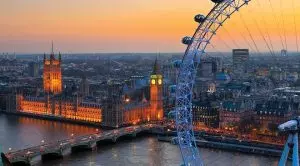 Scotland will hold its next parliamentary elections approximately four years from now in early May 2026, but online betting sites are already laying the odds for who will become the next head of the Scottish Government. And by the looks of it, they have chosen a clear favourite in the face of Angus Robertson, a former deputy leader of the Scottish National Party (SNP) and current Constitution Secretary.
Scotland will hold its next parliamentary elections approximately four years from now in early May 2026, but online betting sites are already laying the odds for who will become the next head of the Scottish Government. And by the looks of it, they have chosen a clear favourite in the face of Angus Robertson, a former deputy leader of the Scottish National Party (SNP) and current Constitution Secretary.
Whether or not Robertson will indeed prevail in the upcoming ministerial race remains to be seen in 2026. Even if he fails, there is a good chance another national party member would take the spot, at least according to the oddsmakers’ prognosis. SNP members dominate this betting market at all large online sportsbooks, with John Swinney and Kate Forbes coming second and third behind the current leader.
On the other side of the spectrum, we have several labourists at longer odds including Anas Sarwar. Douglass Ross who currently leads the Conservative Party is also listed for the ministerial seat although his chances are slimmer. But before we get into the particulars of pricing, let’s examine the election process and the role of the First Minister in Scotland.
Election Process and Role of Scotland’s First Minister
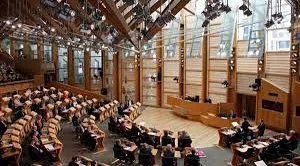 The First Minister of Scotland takes on various responsibilities, including appointing cabinet members and other ministers, supervising governmental operations, and representing the country. He or she is also responsible for developing and administering policies on important matters related to health, education, and justice, among others.
The First Minister of Scotland takes on various responsibilities, including appointing cabinet members and other ministers, supervising governmental operations, and representing the country. He or she is also responsible for developing and administering policies on important matters related to health, education, and justice, among others.
Scotland is a constituent country of the UK along with England, Northern Ireland, and Wales. Due to this the British Parliament in Westminster maintains a remit over reserved matters such as defence, overseas trade, and foreign policies, among others.
Under the terms of the 1998 Scotland Act, the person elected as a First Minister should be one of the members of the country’s parliament. The First Minister can remain in office indefinitely as long as they preserve the confidence of Scotland’s Parliament.
Should they fail to come up with a candidate, the current parliament dissolves and a new parliamentary election takes place. The British monarch, Her Majesty Queen Elizabeth II in this case, should then officially appoint the nominated person. Westminster devolved some of its powers to the Scottish Parliament back in 1999. Since then the country has seen several leaders pass through Bute House, the official residence of Scottish First Ministers in Edinburgh, including the incumbent Nicola Sturgeon.
| Scotland Has Seen Five First Ministers So Far | ||
|---|---|---|
| First Minister | Term in Office | Party Affiliation |
| Donald Dewar | From 1999 to 2000 | Labour Party |
| Henry McLeish | From 2000 to 2001 | Labour Party |
| Jack McConnell | From 2001 to 2007 | Labour Party |
| Alex Salmond | From 2007 to 2014 | Scottish National Party |
| Nicola Sturgeon | From 2014, Incumbent | Scottish National Party |
Source: gov.scot
Why Party Affiliation Matters
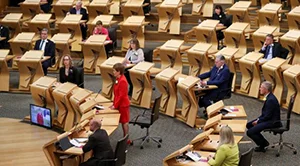 Even if Angus Robertson fails to prevail in 2026 and another person secures the ministerial seat, he or she is likely to also be a member of the Scottish National Party (SNP). While any MSP can be selected by fellow parliamentary members for this role, history shows an interesting tendency.
Even if Angus Robertson fails to prevail in 2026 and another person secures the ministerial seat, he or she is likely to also be a member of the Scottish National Party (SNP). While any MSP can be selected by fellow parliamentary members for this role, history shows an interesting tendency.
The cabinet must enjoy the confidence of parliamentary members to stay in office and receive Exchequer funding. Due to this, the person elected for this important position almost inevitably is also the leader of the country’s biggest party. In the absence of an absolute majority, the leader of the biggest party in a majority coalition usually becomes a First Minister.
General Elections Votes Distribution in Scotland
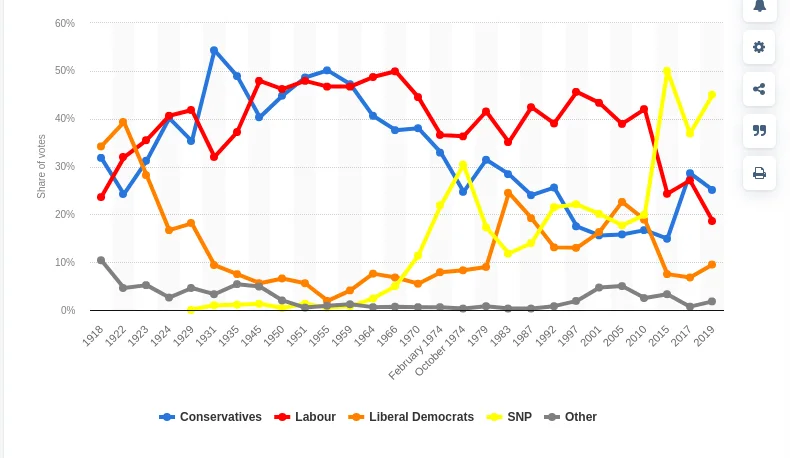
Source: Statista
For example, the Labour Party secured the highest number of votes during the first parliamentary elections in 1999, winning 56 out of 129 seats. It also landed the majority of constituency seats and created a coalition with the Liberal Democrats.
Labour leader Donald Dewar thus became a First Minister only to be succeeded by labourist Henry McLeish after his death in 2000. Labourists continued to hold a majority in the 2001 election and their dominance continued until 2007 when they fell behind the SNP by a small margin.
As a result, Alex Salmond who led the SNP at the time secured the ministerial seat with backing from the Scottish Green Party. Salmond cemented a second term four years later when the SNP pulled off a whopping victory in the election. After the country voted against secession from the UK in the 2014 independence referendum, Salmond resigned from his position.
If current support levels for the Scottish National Party hold, there is a good chance the country will again have an SNP First Minister in 2026. This seems to be a likely scenario if one looks at the figures from a YouGov survey conducted in late 2021 for The Times.
Most Scots (48%) leaned towards the National Party when asked how they would vote if there was a Holyrood election the next day. For clarification, the survey involved 1,060 adults and took place between November 18 and November 22.
| Scots’ Voting Intentions as of November 2021 | ||
|---|---|---|
| Party | Constituency Vote | Party Vote |
| SNP | 48% | 38% |
| Conservative Party | 21% | 19% |
| Labour Party | 19% | 19% |
| Green Party | 2% | 11% |
| Liberal Democrats | 7% | 7% |
| Other Parties | 3% | 6% |
Source: yougov.co.uk
Minister Sturgeon Plans to Lead Scotland at Least until 2026
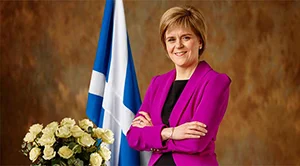 Scotland’s incumbent First Minister sparked off controversies on several occasions in the past, the biggest of which had to do with the sexual harassment accusations against her predecessor Alex Salmond. The drama started back in 2018 when several female servants complained the former leader of the Scottish Government had been sexually harassing them while in office.
Scotland’s incumbent First Minister sparked off controversies on several occasions in the past, the biggest of which had to do with the sexual harassment accusations against her predecessor Alex Salmond. The drama started back in 2018 when several female servants complained the former leader of the Scottish Government had been sexually harassing them while in office.
Sturgeon Was Subject to Probe over Alleged Ministerial Code Breach
Mr Salmond went through a turbulent trial but was eventually acquitted on all counts in 2020. The allegations gave rise to two inquiries, starting with a governmental investigation into the harassment complaints. Sturgeon’s actions with respect to the accusations against Salmond were also subject to a probe. The First Minister confirmed at the time she had met with her predecessor in secret and called him over the phone to discuss the allegations.
The inquiry dragged on until March 2021 when the inquiry panel eventually determined there was no breach of code on Sturgeon’s behalf. The First Minister weathered out a vote of no confidence in the Scottish Parliament, with 65 to 31 votes in her favour.
Gender Reform Controversy and Care Home Scandal
The First Minister ignited another controversy in August 2021 when she was accused of attempting to hinder debates over contentious gender reforms. Her decisions about moving over a thousand untested elderly inpatients to care homes for the purposes of freeing up hospital space were also met with disapproval.
Sturgeon Is Here to Stay Despite Past Controversies
The backlash over some of Sturgeon’s decisions has caused people to question whether she would serve her full term. The SNP leader has been a thorn in the eyes of many Conservatives, including Prime Minister Boris Johnson. Liberal Democrats leader Alexander Cole-Hamilton went as far as describing Sturgeon’s Party as a “viper’s nest” and predicted the SNP’s fall after her departure from the ministerial seat.
If the First Minister is going to insist on regular press briefings again, she needs to reflect on her conduct towards journalists. This is pretty poor. 👇🏻 https://t.co/mMc0PmI47v
— Alex Cole-Hamilton MSP🔶 (@agcolehamilton) December 18, 2021
The point is there are people both in Holyrood and Westminster that would feel zero regrets if Sturgeon stepped down from her position before 2026. She admitted she toyed with the idea of resigning during the inquiry into Salmond, but then changed her mind.
Sturgeon recently dismissed the speculations about her withdrawal during a BBC interview, vowing to remain in office at least until 2026. Looking at voters’ opinions, many seem not to mind her staying according to a survey Panelbase conducted among 2,038 adults from Scotland.
Polling is not a sure-proof indicator of the public’s sentiments as opinions on the same subject often differ based on who conducted a given survey, when, and what representative cross-section was involved. Data from the opinion polling site YouGov suggests Scotland’s First Minister does not enjoy such a great popularity among the general population, with 48% of people in the UK disliking her, 28% liking her, and 19% being indifferent.
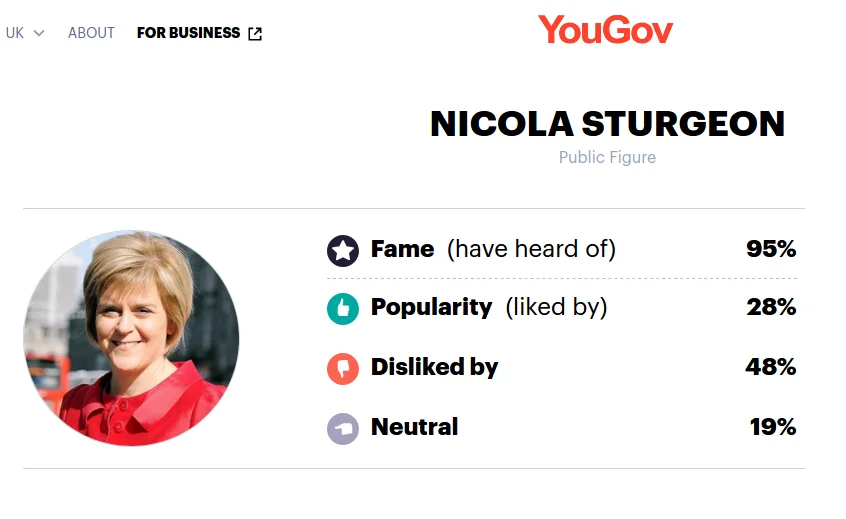
As for bookmakers, large bookmaking firms like Ladbrokes and Coral have also jumped on the bandwagon with odds for Sturgeon remaining in post as Scotland’s First Minister at the next Holyrood election. Looking at the pricing, it appears Sturgeon stands a better chance of still being in the ministerial seat in 2026.
Both sportsbooks estimate the probability of this happening is nearly 62%, quoting odds of 8/13 for this outcome. Ladbrokes and Coral consider Sturgeon vacating the ministerial spot is the less likely scenario at odds of 6/5, which corresponds to implied probability of approximately 45%.
Robertson’s Political Career So Far
 Angus Robertson being the clear favourite of becoming the First Minister in 2026 does not come as a shock considering his extensive experience on the political scene. Mr Robertson became a member of the Scottish National Party in the mid-1980s and first carved out a successful career in the field of international journalism.
Angus Robertson being the clear favourite of becoming the First Minister in 2026 does not come as a shock considering his extensive experience on the political scene. Mr Robertson became a member of the Scottish National Party in the mid-1980s and first carved out a successful career in the field of international journalism.
When he transitioned to politics, he started as a parliamentary advisor. He joined the lower house of the UK Parliament in 2001, becoming Scotland’s youngest parliamentary member. Mr Robertson represented the council area of Moray at the time. His drive and commitment earned him the moniker of the hardest-working member of parliament. During his stay in the House of Commons, Mr Robertson also acted as the official spokesperson for the SNP on defence and foreign relations.
After Alex Salmond became First Minister in 2007, Robertson was chosen as SNP leader in the lower house of the UK Parliament, a position he retained during Salmond’s second term. Following Salmond’s resignation, Robertson transitioned to the Intelligence and Security Committee of Parliament and joined Her Majesty’s Most Honourable Privy Council.
In the autumn of 2016, he became the second-in-command of the Scottish National Party, replacing former party leader Stewart Hosie. He eventually gave up the post at the beginning of 2018 because he lost his position as a representative of the Moray council area. Three years later, Mr Robertson prevailed over his conservative opponent in Scotland’s parliamentary election, winning the seat for the Edinburgh Central borough constituency.
Angus Robertson (@AngusRobertson) has been appointed Cabinet Secretary for the Constitution, External Affairs and Culture. pic.twitter.com/t7lnJDVQzj
— Scottish Government (@scotgov) May 19, 2021
What we consider the height of his career is his current position – last year Scotland’s First Minister appointed him as Cabinet Secretary for the Constitution, External Affairs, and Culture. Mr Robertson currently resides in the Edinburgh Central constituency with his wife, two daughters, and pets.
Angus Robertson’s Political Career at a Glance
- 2001 – MP in the UK House of Commons (represented the Moray council area), member of the European Scrutiny Committee, SNP spokesperson for foreign affairs and defence
- 2007 – SNP leader in the lower house of the UK Parliament
- 2015 – Member of the Intelligence and Security Committee of the UK Parliament
- 2016 – Deputy leader of the Scottish National Party
- 2019 – Founder of the pro-independence think-tank Progress Scotland
- 2021 – MP for the Edinburgh Central borough constituency at Scotland’s Parliament; Cabinet Secretary for the Constitution, External Affairs, and Culture
The Clear Favourite Is No Stranger to Controversy
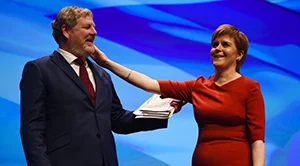 Similarly to First Minister Sturgeon, Angus Robertson has had his fair share of controversy in the past. Then again this is understandable given his field of work – the political scene is more often than not a battleground.
Similarly to First Minister Sturgeon, Angus Robertson has had his fair share of controversy in the past. Then again this is understandable given his field of work – the political scene is more often than not a battleground.
The Salmond Controversy
Robertson got unwillingly involved in the Alex Salmond scandal when information leaked in 2018 that an airport manager reached out to him in relation to what he considered inappropriate behaviour on behalf of Mr Salmond.
The manager in question appealed to Mr Robertson in 2009, asking him to approach Mr Salmond informally about his conduct. After doing so Robertson thought the matter was over, but eventually became subject of investigation in 2020 about his handling of the allegations made over a decade ago.
The Bedroom Tax Controversy
Mr Robertson has faced criticism about his political decisions as well. The SNP was heavily campaigning for the repeal of the so-called bedroom tax in 2014. Said tax applied to working-age individuals and had their housing benefits reduced if their rented accommodations were larger than they needed. Despite this issue being in the centre of the party’s campaign for the 2014 independence referendum, Mr Robertson and several of his colleagues did not appear to vote on the repeal.
The “Stalinist” Clampdown on Free Speech
Shortly before the 2015 general election, Robertson had his party introduce a code of conduct that disallowed SNP members to publicly criticise each other. Politicians from opposing parties frowned at the move, with some describing it as a “Stalinist” clampdown on free speech.
The London Property Controversy
Mr Robertson sold his second home in the UK capital while he was still serving as an SNP leader in the House of Commons. The cost of the purchase was funded with taxpayer money. Mr Robertson had previously vowed to either give back the profits from the sale to the public purse or donate them to charitable organisations in his constituency.
Years later the local media reported he had used the profits from the property’s sale to cover part of his divorce expenses when he separated from his first spouse, Carron Anderson. He denied the allegations at the time and insisted he had no capital gain from the property’s sale. As it turned out the pieces of furniture and the other content of the property went to various charities in Moray.
The Russell-Robertson Book Spat and the Celtic Connection Drama
Another controversy erupted in September 2021 when SNP President Michael Russell reproached Angus Ferguson for promoting his new book Vienna – The International Capital on the Twitter platform. The Cabinet Secretary also inserted a link for those interested in preordering. Mr Russell subsequently posted a tweet, which he later deleted, questioning whether Robertson’s actions constituted an MSP code breach and accusing him of not concentrating on his “day job”.
‘Vienna – The International Capital’ is arriving. My new book is available in two weeks time. Pre-order here: https://t.co/BeOCatpEgc #Vienna pic.twitter.com/PeoxDDuC2y
— Angus Robertson (@AngusRobertson) September 25, 2021
The Cabinet Secretary was recently slated for encouraging Scots to attend the Celtic Connections festival after Minister Sturgeon enforced strict coronavirus restrictions on indoor events. Celtic music fans who had already purchased their tickets were bitterly disappointed after many of the shows were rescheduled.
Mr Robertson’s comment garnered much attention from those who were unable to attend the rescheduled shows due to the coronavirus curbs. Conservative MSP Adam Tompkins reprimanded Robertson for preaching about supporting the events when it was his government that imposed “completely unnecessary” restrictions on them.
As Covid restrictions are lifted in Scotland please support events like Celtic Connections which are showcasing fantastic Scottish and international performers. @ccfest #Covid19 #CultureRecovery https://t.co/pAHU1wene7
— Angus Robertson (@AngusRobertson) January 19, 2022
Other Twitter users also chimed in on the matter, with one person commenting that showing support for Celtic musicians would have been easier if the government had not cancelled the events in the first place. Others expressed their disappointment at not being able to attend due to the rescheduling.
The SNP Dominates the First Minister Betting Market
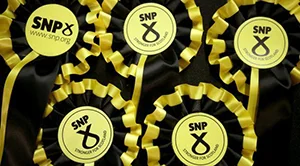 While the parliamentary elections will take place more than four years from now, betting sites have already picked Angus Robertson as the clear favourite. His lead is perhaps unsurprising given his vast experience on the local political scene. Mr Robertson is also a keen proponent of Scotland’s secession from the United Kingdom, a move many Scots appear to desire judging by opinion poll results.
While the parliamentary elections will take place more than four years from now, betting sites have already picked Angus Robertson as the clear favourite. His lead is perhaps unsurprising given his vast experience on the local political scene. Mr Robertson is also a keen proponent of Scotland’s secession from the United Kingdom, a move many Scots appear to desire judging by opinion poll results.
The Cabinet Secretary is likely to play an important role in a potential independence referendum if Minister Sturgeon fails to carry out her plans of organising it by the end of next year. Robertson has addressed the subject on multiple occasions in the past. He once expressed the opinion that Westminster’s unwillingness for a second independence referendum was “inconceivable”.
Scotland’s best future is as an independent member state of the European Union. Sadly Labour are fully signed up to Boris Johnson’s Brexit Britain. 🏴🇪🇺 #Europe #EU #Scotland https://t.co/xRAaTTQ7k1
— Angus Robertson (@AngusRobertson) February 14, 2022
It is therefore unsurprising his support for secession, combined with his expertise in politics, has earned him the top spot in the ministerial race. Robertson’s chances come in at 5/2 according to Ladbrokes and Coral, while William Hill estimates his probability of winning the race is higher at 13/8. His main contenders all share the same party affiliation and are members of the SNP.
Kate Forbes is among the youngest possible successors of the current First Minister. At age 31, Forbes presently serves as Cabinet Secretary for Finance and Economy. She comes third in terms of winning chances, followed by Health Secretary Humza Yousaf. Labourist Anas Sarwar and SNP members Joanna Cherry and Keith Brown all come in at 16/1 at Ladbrokes and Coral. William Hill estimates Cherry and Sarwar’s chances at 14/1 and 12/1, respectively.
| Betting Odds for the Top Contenders for Next Scottish First Minister | |||
|---|---|---|---|
| Candidate | William Hill | Ladbrokes | Coral |
| Angus Robertson | 13/8 | 5/2 | 5/2 |
| John Swinney | 8/1 | 6/1 | 6/1 |
| Kate Forbes | 13/2 | 8/1 | 8/1 |
| Humza Yousaf | 13/8 | 10/1 | 10/1 |
| Anas Sarwar | 12/1 | 16/1 | 16/1 |
| Douglas Ross | 16/1 | 16/1 | 16/1 |
| Joanna Cherry | 14/1 | 16/1 | 16/1 |
| Keith Brown | 16/1 | 16/1 | 16/1 |
| Alex Salmond | 25/1 | 33/1 | 33/1 |
| Mhairi Black | 20/1 | 33/1 | 33/1 |
| Ruth Davidson | 33/1 | 33/1 | 33/1 |
| Michael Russell | 28/1 | 50/1 | 50/1 |
| Derek Mackay | 50/1 | 50/1 | 50/1 |
Former Scottish Tory leader Douglas Ross is also listed as a potential successor of Sturgeon at 16/1. Ross famously made a £50 bet with the incumbent First Minister after claiming in local media that she would resign before 2026. Sturgeon readily took the bet as she was confident she would remain in office by the next election.
At the lower spectrum of the prices, we see Andy Murray, David Coburn, and pro-independence blogger Stuart Campbell. Their chances of cementing the position are ridiculously small at odds of 500/1, which corresponds to implied probability of a meagre 0.20%.
- Author
